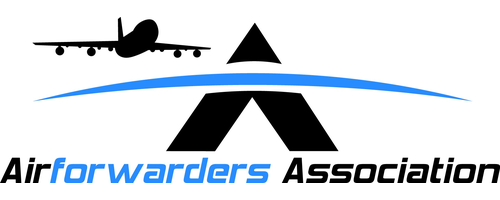Press Release
Allow Privately Trained Dogs to Screen Air Cargo at Off-Airport Facilities, Airforwarders Urge Congressional Panel
For Immediate Release: June 24, 2014
(WASHINGTON) - The Transportation Security Administration (TSA) should move toward permitting private contractors to train explosive-sniffing dogs and make them available for use at government certified cargo screening facilities, the Airforwarders Association (AfA) urged a congressional panel in testimony today.
Appearing before the U.S. House of Representatives' Homeland Security Subcommittee on Transportation Security, AfA board member Chris Connell urged TSA to finalize its efforts to develop a program for private companies to use their own canines, certified to TSA standards, to meet federal air cargo screening mandates. Currently, TSA permits only the use of the agency's dogs in cargo screening, and only at on-airport facilities.
Click here to download a copy of the AfA's written testimony.
Connell, who is President of Commodity Forwarders, Inc., a Los Angeles-based freight forwarding company specializing in perishable products, said enabling the use of private sector dogs will help broaden the security options for freight forwarders who operate off-airport Certified Cargo Screening Facilities (CCSF), which are supervised by TSA.
"We are not saying that privatized canines are a magic bullet when it comes to screening cargo, but they are a potentially valuable part of this multilayer approach - another important tool in the toolbox, if you will - that includes a range of other technology solutions that our members can use to meet their screening requirements," he said.
Connell told the subcommittee that the AfA had just recently surveyed its members and found that fully three-quarters of the respondents - about half of whom operate CCSFs - said they would strongly consider using dogs provided by private companies if they were given the option to do that.
While emphasizing that the threat to the aviation industry remains high and association members are determined to do their part to ensure safety, Connell noted that "time is money in our business. And right now our company believes that we could save over a million dollars a year at our LAX facility if we had access to a third party solution deploying canines. And of course our customers would highly appreciate the time savings that this solution would help us achieve."
"Accordingly, we are highly interested in any solution that can help us expedite the screening process, move our perishables more quickly through the supply chain, and still provide the utmost in safety and security of what we ship. We think dogs can really help us do that," he said.
Connell also noted that use of specially trained dogs is one of several methods for screening air freight that are identified in the 9/11 Commission Recommendations Act that was passed by Congress in 2007. And he said that, given the track record of using canines in cargo screening, proceeding with a private sector option - with solutions fully regulated, certified and monitored by government agencies - would square with other screening approaches such as in-house x-ray and ETD, where the government relies on private sector solutions that are tested and certified.
About the Airforwarders Association
The Airforwarders Association (AfA) represents more than 360 member companies dedicated to moving cargo throughout the supply chain. The association's members range from small businesses with fewer than 20 employees to large companies employing more than 1,000 people and business models varying from domestic to worldwide freight forwarding operations. In short, they are the travel agents for freight shipments, moving cargo in the timeliest and most cost efficient manner whether it is carried on aircraft, truck, rail or ship. For more information, visit the association's website at www.airforwarders.org.
Media Contact
David St. John
202-657-6033

